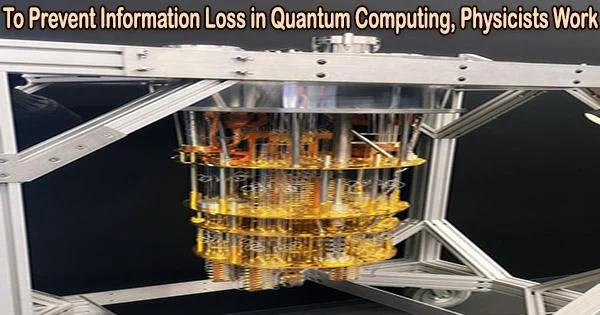Even though there is no such thing as a vacuum, physicists frequently wish there were. Things would be much simpler if the systems that scientists examine could be totally cut off from the outside world.
Consider the quantum computer. It’s a field that has already attracted billions of dollars in funding from high-profile tech companies and business giants like IBM, Google, and Microsoft. However, even the slightest outside vibrations have the power to wipe out information in a quantum system.
For instance, if light has enough energy to jitter the atoms inside a quantum processing chip, it could result in information breaches.
“Everyone is really excited about building quantum computers to answer really hard and important questions,” said Joe Kitzman, a doctoral student at Michigan State University. “But vibrational excitations can really mess up a quantum processor.”
But, with new research published in the journal Nature Communications, Kitzman and his colleagues are showing that these vibrations need not be a hindrance. In fact, they could benefit from quantum technology.
“If we can understand how the vibrations coupled with our system, we can use that as a resource and a tool for creating and stabilizing some types of quantum states,” Kitzman said.
What that means is that researchers can use these results to help mitigate information lost by quantum bits, or qubits (pronounced “q bits”).
We’re creating a paradigm system to understand how this information is scrambled. We have control over the environment, in this case, the mechanical vibrations in the resonator, as well as the qubit.
Johannes Pollanen
Conventional computers rely on clear-cut binary logic. By adopting one of two unique potential states, frequently indicated as zero or one, bits contain information. Qubits, on the other hand, are more adaptable and can be concurrently in the zero and one states.
Even though it could appear to be cheating, quantum mechanics permits such behavior. However, for certain challenges in a range of fields, such as science, finance, and cybersecurity, this trait should give quantum computers significant benefits over traditional computers.
Beyond its implications for quantum technology, the MSU-led team’s report also helps set the stage for future experiments to better explore quantum systems in general.
“Ideally, you want to separate your system from the environment, but the environment is always there,” said Johannes Pollanen, the Jerry Cowen Endowed Chair of Physics in the MSU Department of Physics and Astronomy. “It’s almost like junk you don’t want to deal with, but you can learn all kinds of cool stuff about the quantum world when you do.”
Pollanen also leads the Laboratory for Hybrid Quantum Systems, of which Kitzman is a member, in the College of Natural Science. For the experiments led by Pollanen and Kitzman, the team built a system consisting of a superconducting qubit and what are known as surface acoustic wave resonators.
One of the most widely used types of qubits among businesses creating quantum computers is these ones. Many contemporary communication gadgets, such as telephones and garage door openers, employ mechanical resonators; today, organizations like Pollanen’s are using them in developing quantum technologies.
With the aid of the team’s resonators, the scientists were able to adjust the vibrations qubits felt and comprehend how the mechanical interaction between the two affected the fidelity of quantum information.
“We’re creating a paradigm system to understand how this information is scrambled,” said Pollanen. “We have control over the environment, in this case, the mechanical vibrations in the resonator, as well as the qubit.”
“If you can understand how these environmental losses affect the system, you can use that to your advantage,” Kitzman said. “The first step in solving a problem is understanding it.”
“MSU is one of only a few places equipped and staffed to perform experiments on these coupled qubit-mechanical resonator devices,” Pollanen said, “and the researchers are excited to use their system for further exploration.”
The team also included scientists from the Massachusetts Institute of Technology and Washington University in St. Louis.





